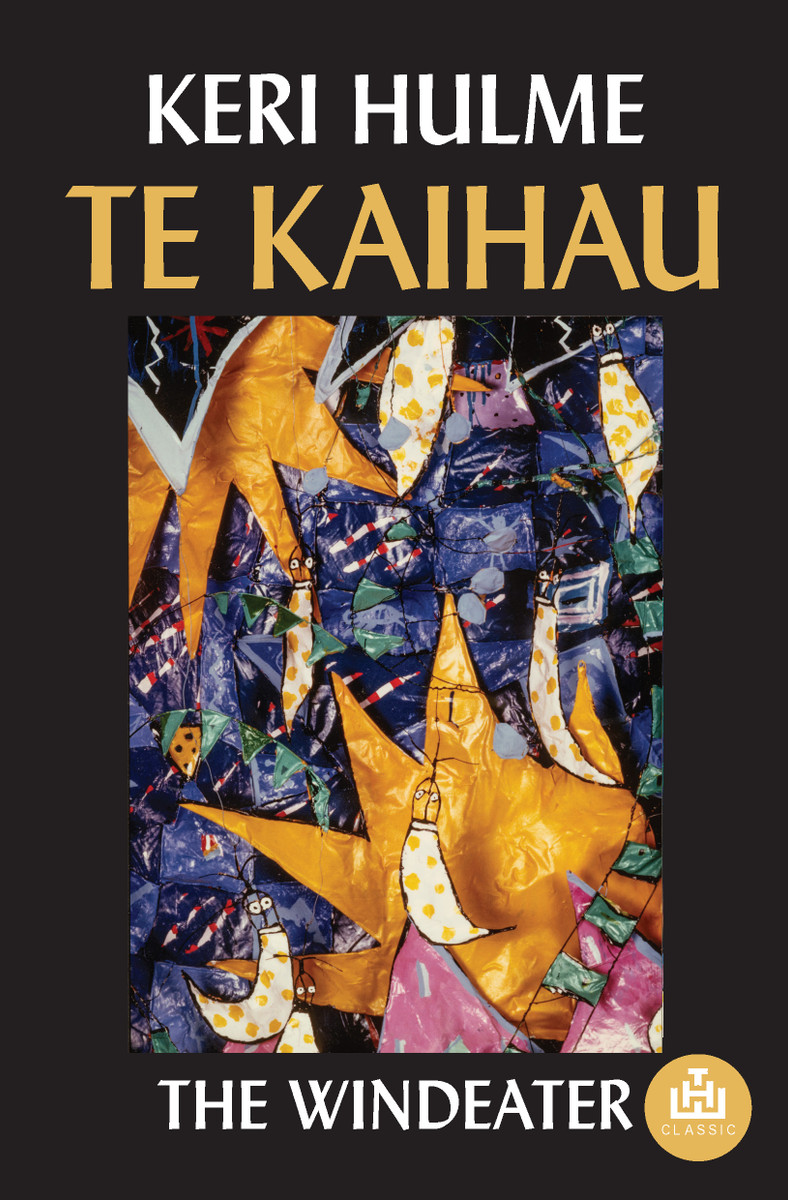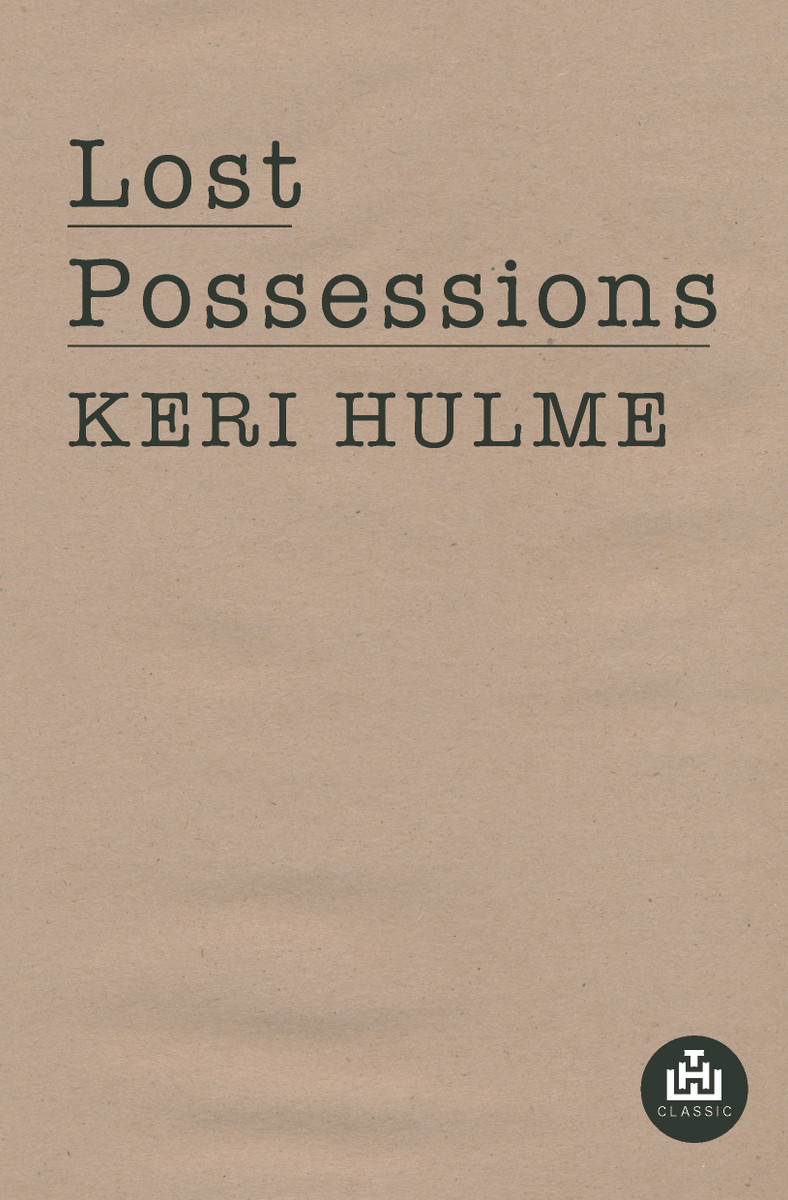The late Keri Hulme will always be best known for the bone people, Booker Prize-winner in 1985, but from the mid-70s she was actively publishing poetry, short stories and novellas. In 1977 she was Otago University’s Burns Fellow—splitting the tenure with Roger Hall—and was awarded several writing grants before the novel was published by the feminist Spiral Collective in 1984. (That decade Spiral also published J.C. Sturm’s story collection, another landmark in Maori short fiction.) By the time Hodder and Stoughton published the novel in the U.K., making it eligible for the Booker, the bone people had already won at the New Zealand Book Awards and sold out two local print runs.
Hulme’s story collection, Te Kaihau: The Windeater, was published in 1986, launched at the first-ever Readers and Writers Week in Wellington four months after the Booker win. In some ways this was felicitous timing, but it could be argued that the novel’s international celebrity meant the stories have been overshadowed. Now available as a reissue in the THW Classics series, the collection draws together the work of a rich, fertile decade, including the story ‘Hook and Sinker’, winner of the Katherine Mansfield Memorial Award.
Te Kaihau is testimony to Hulme’s unique gifts and perspectives as a writer, even if one story here, ‘Kaitbutsu-San’, does not quite stand the test of time. It’s a collection that is, by turns, brutal and beautiful, dark and comedic. Some of Hulme’s characters are maimed in violent accidents; many drink too much, and struggle with past and present darkness, as well as challenges both physical and metaphysical.
Ever the iconoclast, Hulme is playful with form, as we see in the book’s foreword, ‘Tara Diptych’, and afterword, ‘Headnote to a Maui Tale, as well as in the artful, disruptive sidebar notes and script-form scenes of ‘A Tally of the Souls of Sheep’. (The word ‘sheep’, a note tells us, means any ‘member of the ruminant genus Ovus. Or, person displaying the characteristics of the animal’.)
‘A Tally’ is an accomplished horror story, and that’s another of Hulme’s gifts, combining highly stylised imaginative literary writing with genre form, and both subverting and inflecting realism with the fantastic. ‘The Cicadas of Summer’ is another horror tale, set like ‘A Tally’ in a stark, dangerous countryside where isolation can lead to entrapment. Adolescent Gwen is so preoccupied with her ruthless war on the ‘singers’ and ‘nymphs’ of the cicada world—stalking, pulping, dissecting and even eating them, revelling in the ‘deep and belly-satisfying side to killing’—that she is oblivious to the predator living in the backyard shack. The danger to the narrator of the long title story has mythic dimensions: as a baby she is dropped into a ‘great green helix of live water’ lashed by anaconda and is destined, it seems, to death-by-boiling-mud in Rotorua. There ‘are things quite outside humanity,’ the narrator reasons, ‘and we can’t do battle with them.’
Many of Hulme’s stories explore the unsentimental life-and-death stakes of the natural world, and it’s no surprise that some of the most vivid and visceral writing here is about the creatures of rivers and seas, including the title story and ‘One Whale, Singing’. In the glorious ‘King Bait’, a river is transformed into ‘a viscous moving jelly’ of ‘white slimefroth’ by the iconic fish.
‘A Drift in Dream’ is an origin story for Simon, the mute boy in the bone people: here he’s a baby with a vulnerable French mother, a former nun, and an Irish druggie father, whose charm does not mask his dangerous volatility. Parents in these stories are negligent, at best. Gwen’s father, consumed by depression, is a ‘whimpering shade of himself’ and unable to protect his daughter. In ‘Hooks and Feelers’, a boy is maimed in an accident caused by his mother, and the story’s narrator, the father, weeps in his shed. A fatherless boy named Bird, in ‘A Nightsong for the Shining Cuckoo’, is exiled and summoned back at will by his mother. The girl in the sinister ‘The Knife and the Stone’ is like a fairytale captive of her own parents, condemned to gut fish and a life of scales and slime, and her lurching father ‘fumbling, delving’ when he gets drunk.
‘Is there ever a real answer to anything or a true end to any story?’ the narrator of ‘Te Kaihau: the Windeater’ asks, a question pertinent to Lost Possessions, also first published in 1985. A scant 50 pages, the book is described as a novella but reads like a narrative poem or a dramatic monologue. A male academic ‘with soft white hands’ has been kidnapped and imprisoned by ‘unknown black’ assailants:
I am very clearheaded and very weak
i am harrod wittie doctor of philosophy
failed lover failed test failure man
Like Hulme’s castaway tale ‘Unnamed Islands in the Unknown Sea’, the relic of a confused written record forms the narrative. A ‘Miscellaneous Property Record Card’ at the story’s end tells us 47 handwritten sheets were found in the centre of town, stuffed into a child’s plastic purse. The lecturer, identified in these pages as an English professor, is apparently a teacher of Anthropology. ‘Student prank?’ the card asks. We’re not sure.
Lost Possessions is set in 1983, a year before the sensational 1984 abduction of university lecturer and playwright Mervyn Thompson, who was accused of sexual coercion. The lecturer in Lost Possessions has had a relationship with a younger woman from New Guinea who he describes as ‘little, compact, black’. Are the ‘lost possessions’ these pages or are they the Pacific islands? Is the empire striking back against the colonial academy, with its disrespectful treatment of human remains (‘smokedried’ heads, mummies)? As ever, Hulme is provocative as well as lyrical and allusive, setting traps for her characters and complex challenges for readers.
This review was originally published on the Academy of NZ Literature site.




